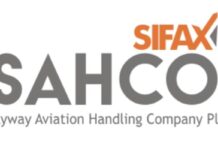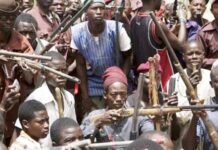The commissioner and chief executive of Accident Investigation Bureau (AIB), Mr. Akin Olateru has said that Unmanned Aerial Vehicle (UAV) popularly known as drone is critical to aircraft accident investigation as it ensures data accuracy.
The commissioner who stated this at the agency’s Remotely Piloted Aircraft Systems (RPAS) training for investigators held at University of Lagos (UNILAG) recently outlined the benefits of drones in accident investigation to first responder capability, on-time post-crash site preservation capability, gathering, preservation and analysis of crash site evidence, 3D modelling capability and accurate and complete wreckage diagram through site mapping capability.
Ten investigators were trained on the use of UAV.
He said the training was the Nigerian Civil Aviation Authority (NCAA)-approved RPAS training according to the advisory circular GAD-AC-002B in line with the International Civil Aviation Organisation (ICAO) RPAS Operations Document 10019, Section 8.4.31 internationally and the NCAA General advisory GAD-AC-002 Section 4.7/ Appendix E29 locally.
He said the agency would continue to enhance human capacity building not only for the industry, but also for the country at large.
“Adapting to the latest trends and technologies in accident investigation ensures that our facilities and reports are rated highly all over the world. To ensure that these trends and technologies are effectively and efficiently utilised, our staff need to be regularly trained and retrained.
“At AIB, we believe in investing in our human capital so that they can be able to put in their best in the delivery of their various duties. To make any organisation a success story, human capital remains the greatest asset and you must invest in it. It is important to continuously train and equip the staff, give them support and they must trust you as management for them to be able to deliver on their mandate.
“So far, this ideology has worked greatly for AIB. We now publish our final reports timely, thanks to our adaptation of the latest trends and technologies and rigorous training of our human capital,” he said.
He said since he became commissioner, he had raised the profile of AIB from a sleeping agency to a more vibrant one adding that the bureau had improved in infrastructure, training and welfare for staff.
He pointed out that in 2019 alone the bureau trained its investigators in the United Kingdom, United States and several other overseas countries.
He said the deployment of the drone technology was important to investigation process, stressing that mishap could occur anywhere.
He maintained that the equipment could also help its investigators to capture the whole site from the initial impact point to the wreckage’s final resting location.
“The ground marks and wreckage distribution help to identify how the aircraft hit the ground. Aerial images are also useful for showing the relative positions of obstacles, such as trees or buildings that may have been struck before ground impact.
“They help to reveal the surrounding terrain and environment that the pilot faced if there was an attempted forced landing. And when it’s a large aircraft at an accident site, aerial images help to document the damage to its upper surfaces,” he said.
Olateru praised UFO Aerial Services for training the AIB staff on the use of the equipment and appealed to the trainees to put the knowledge garnered at the training to proper use in order to encourage others.
Also speaking, the chief executive officer (CEO) of UFO Aerial Services, Mr. Damilola Adelala, the extolled the commitment of the trainees, saying they behaved professionally throughout the duration of the course.
He said the knowledge acquired would help them to improve their technological-know-how about the job and data gathering.





























































